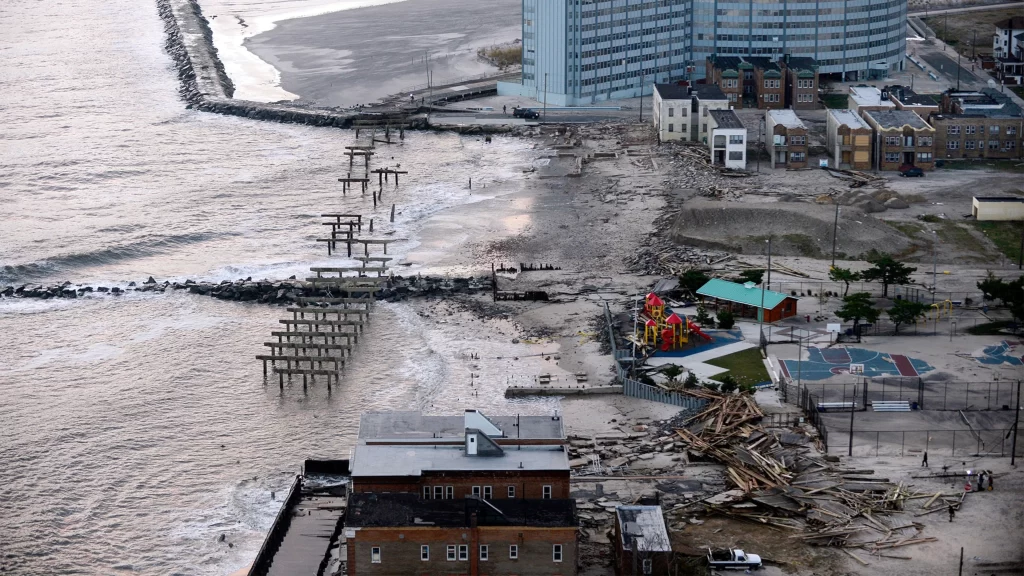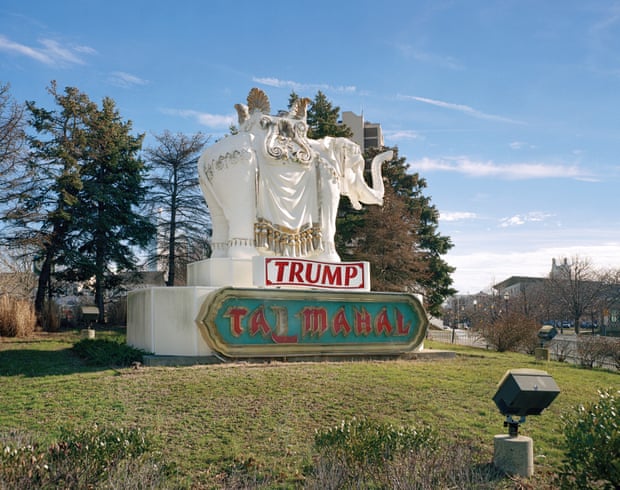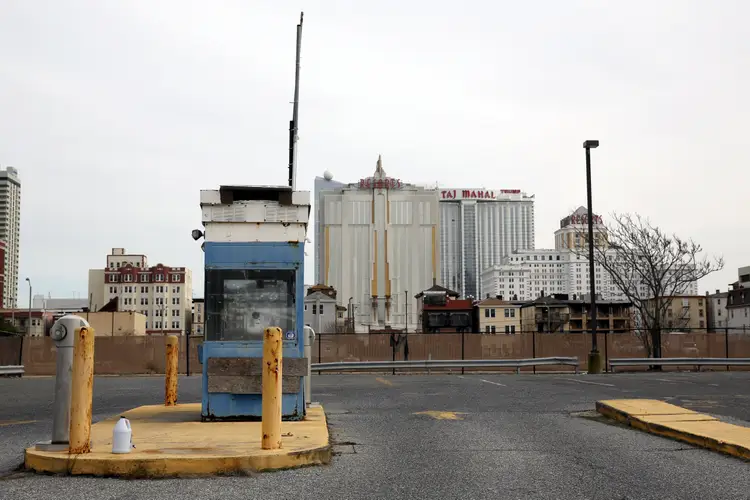
I’ve only been to Atlantic City one time (friend’s bachelor party, obvi) and, admittedly, not being a gambler or fan of rooms thick with cigarette smoke (circa 2002), and loathing all aspects of Donald Trump way before it was fashionable, I was underwhelmed. Or, it was exactly what I expected, only more so.
What struck me, as we drove toward the hideous cardboard cut out casino, was how truly run down and sketchy the immediate blocks were: boarded up houses, unreconstructed edifices, and trash everywhere. It looked and smelled like what it was: a desperate shell of a city that had been strafed by the twin-killers Greed and Indifference. It was too easy a metaphor on too many levels; a place of suffering and neglect with an inverse Oz of boardwalk-fronting fake castles where people went to spend and lose money — late capitalism redux.
I’m not sure if I knew, then, that the board game Monopoly is based on properties all around Atlantic City (which has had many different lives, which you can Google, but I also defer to the immortal if overlooked movie Atlantic City where Burt Lancaster shines as a semi-retired has-been and a young-ish Susan Sarandon does things with lemons, and also one of the best essays I’ve ever read, John McPhee’s “The Search for Marvin Gardens.” There’s also The King of Marvin Gardens, a half-baked exercise in what could-have-been if fully formed and executed, a curious if inevitable let-down from Bob Rafelson who was following up one of the great movies of the ’70s, Five Easy Pieces (my tribute to that masterpiece here). And, not least nor last, The Boss hit a grand slam in under 5 minutes with “Atlantic City,” but the entirety of Nebraska explores the desolation of both a country and the forces that enabled the bad guys to permanently stack the deck. More on that, here.)
This poem was boiling around in my brain for a long time, but I think it was reading about a coffee table book (Brian Rose’s Atlantic City) featuring pics of AC (and the inextricable association of AC and DJT, and the readymade ways his feckless annihilation of its potential served/serves as Exhibit A for how wealthy people invariably set the world on fire, for profit, and leave countless lives in a smoldering, ignored heap), and being reminded that, if American journalism hadn’t sadly become access-only exercise for clicks (capitalism, again) and InfoTainment hadn’t had whatever was left of its soul exorcised for reality TV empire tilting, the embarrassment of Donald Trump would have been relegated to the ash heap of history as a punchline and cautionary tale decades before he descended that faux-gold escalator to carry America into the sewage from which he sprung (A great deal more, from me, on that, here).
McPhee beat me to Marvin Gardens as metaphor, but when I learned that St. James is the patron saint of laborers (and suffering in general) something finally clicked and, with props –and apologies– to the better artists name-checked, above, and linked in comments, below, here’s my poetic meditation on The American Dream via Atlantic City, with as many Monopoly references as I could squeeze in. Huge gratitude, as always, to The Decadent Review, for not only publishing my work, but providing a gorgeous aesthetic (as always, I encourage you to support our independent literary magazines and read / donate, and spread the word for the amazing work they do on behalf of art).
St. James’s Place*
Not only so, but we also glory in our sufferings, because we know that suffering produces perseverance.
–Romans 5:3
This city on the sea, reincarnated like a borrowed life: Babylon
redeemed by way of junk bonds, the world’s eighth wonder—
according to He-Who-Didn’t-Compensate-His-Contractors, busy
building anything but wealth, born off Broadway, blue-blooded
and blind to any colors on the wrong side of the strip: his palace,
courtesy of the Community Chest, all faux gold & laundered bills.
Here hotels were built and then abandoned, blithely named after
barons whose fortunes came and went—like trains moving money
and tourists from the boardwalk to more secure settlements
the salted waves won’t reach: their utilities of inherited wealth
conceiving wholly new empires that extended from the ocean
to outer space, fresh time capsules incorruptible by commerce.
Casinos thrive as micro-monopolies: the rigged arenas of dreams
where gladiators die nightly, leaving emptied wallets in sad piles,
like so many bandages on a battlefield, these personal lotteries lost
one slow suicide at a time; the city finally a reflection of the system
it was built to sell, where fortunes are amassed faster than paychecks,
dynasties erected like pyramids, and the stock market is scientific fact.
This impossible promise ruined, patrolled now by cops & cab drivers;
pushers and pimps role-playing tokens, the forsaken streets creeping
with orphaned dogs amidst smoked out bars and boarded up buildings:
dinosaurs unaware the comet was coming, like some divine justice—
finally—as if Christ returned to the money taker’s temple, flipping over
every blackjack table and consigning sweaty pit bosses to eternal fire.
Churches and funerals homes remain in business, starving with vacancies
for the converted or deceased as the least of our brothers, now ghosts,
cover the waterfront while mothers and sisters bear the burdens and babies,
keeping stillborn bloodlines from extinction, and silence herself gives last call
as the Eye in the Sky smiles down on James—patron saint of all who suffer—
reconciled to his place and begging forgiveness for those that trespass.
(*The properties in the board game Monopoly are named after streets in Atlantic City, N.J., famous in the early 20th Century for its beach and boardwalk. The tourist town eventually declined, and gambling was legalized in 1976, followed by high rises and casinos, several owned by real estate tycoon Donald Trump, who declared A.C. the eighth wonder of the world.)


